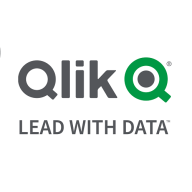

SAP Replication Server and Qlik Compose compete in data integration and replication within enterprise environments. SAP Replication Server holds an advantage in high-speed, real-time data replication, while Qlik Compose shines in data transformation and modeling capabilities.
Features: SAP Replication Server offers real-time data replication, high-speed data handling across heterogeneous systems, and strong reliability in transactional processing environments. Qlik Compose excels in data integration with automation features, advanced data modeling, and data transformation flexibility.
Room for Improvement: SAP Replication Server could benefit from a simplified deployment process, reduced setup complexity, and enhanced user interface. Qlik Compose may improve by expanding its data integration completeness, offering more detailed training resources, and refining scalability options for larger datasets.
Ease of Deployment and Customer Service: Qlik Compose generally provides a smoother deployment experience with intuitive configuration and positive customer support. SAP Replication Server, while equipped with strong documentation, may require more expertise for effective setup but supports established enterprise environments well.
Pricing and ROI: SAP Replication Server's setup costs can be high, but it delivers substantial ROI through efficient data replication for stable environments. Qlik Compose offers a more flexible pricing structure, providing cost-effectiveness and significant ROI by optimizing data automation and transformation processes.


Qlik Sense is a powerful business intelligence tool that offers a range of features to help organizations make faster and more informed decisions. Its primary use cases include operational and financial dashboards, self-service reporting, and centralized access to cross-functional reports. The solution is praised for its mobile platform, ease of use, data-sharing capabilities, and extensibility.
Qlik Sense has helped organizations improve data literacy, reduce time consumed in complex reports, and provide widely available MI to senior stakeholders. It also enables self-service analytics, improves data quality and governance, enhances collaboration, and reduces costs.
Information and data-driven insight is what powers business today. But to get the most from your enterprise data, you need a way to bring transactional, streaming, social media, and other data together – regardless of its format and whether it’s structured or unstructured – and be able to analyze it. The challenge is moving, replicating, and centralizing a wide variety of data efficiently, cost-effectively, and quickly enough to meet business demands for active insight. SAP® Replication Server® can help. SAP Replication Server enables the continuous movement of mission-critical application data.
We monitor all Data Integration reviews to prevent fraudulent reviews and keep review quality high. We do not post reviews by company employees or direct competitors. We validate each review for authenticity via cross-reference with LinkedIn, and personal follow-up with the reviewer when necessary.